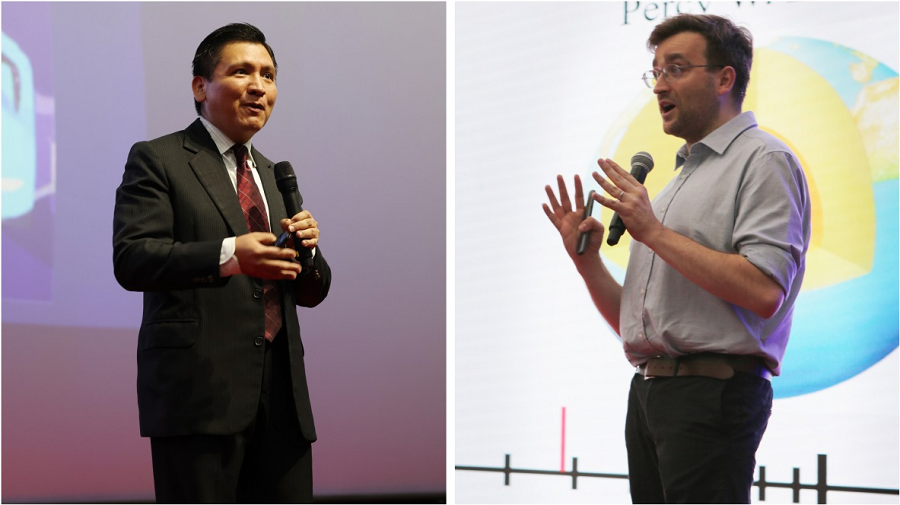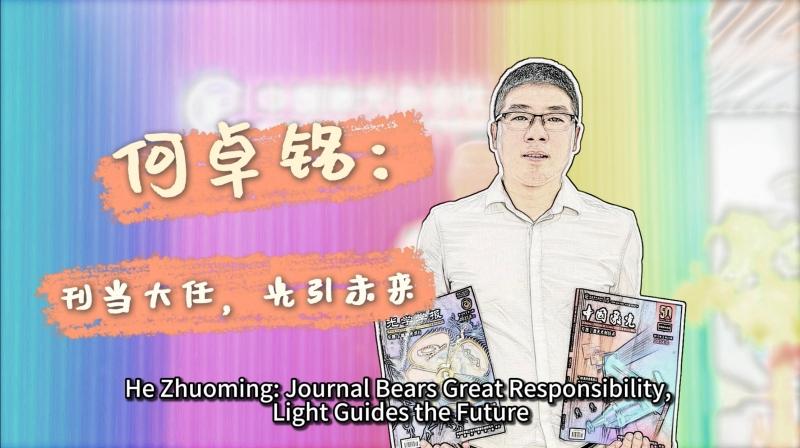From Peanut Butter to Diamonds- Exploring the Mysteries of Science
By?WANG?Xin?&?LONG?Yun

Edgar Perez (Left)and Thomas Meier (Right)deliever the science outreach speeches. (PHOTO: Foreign Talent Research Center, MOST)
Diamonds have always captivated our imagination with their dazzling brilliance and hardness. Traditionally, they are formed deep in Earth's mantle over billions of years under extreme heat and pressure. However, modern science has found a way to accelerate this process and create diamonds in a laboratory environment.
During a science outreach activity held on May 27, Thomas Meier, a German scientist from the Center for High-Pressure Science & Technology Advanced Research, explained the fascinating process of diamond synthesis. "Diamond synthesis is a well-established method nowadays. It only takes a starting material rich in carbon, for example, peanut butter, and the right pressure and temperature conditions to make diamonds," Meier said when sharing his research results with an on-site audience.
Meier's presentation delved into the origin of high-pressure science, starting from the fantasies of alchemists. Through vivid images, captivating examples, and imaginative metaphors, he explained how high-pressure conditions, similar to those deep within Earth, can help humanity create previously unknown materials. The prospects for future developments in this field are vast and promising. "Science outreach is quite important," Meier told S&T Daily, highlighting the significance of inspiring young students to be more innovative and encouraging the generation of new ideas.
"I love exploring the world of science," said Li Ziteng, a fourth-grade student from Beijing Chaoyang Foreign Language School, during an interview with S&T Daily. Li noted that Meier's lecture was engaging and helped him to gain knowledge on the realm of high-pressure science.
On the same day, in another enlightening event held at the Beijing Planetarium, Edgar Perez, an expert from Peru specializing in AI and 5G, unveiled the mysteries of the metaverse. With accessible language, he explained the concept and evolution of the metaverse, the opportunities it brings, the landscapes it can shape, and its future implications. Perez showcased the applications of next-generation AI and metaverse, providing comprehensive insights into the extensive use of digital technology in our lives.
During the lectures, the experts interacted with the students, sparking lively conversations. The abstract and profound scientific knowledge became lively and captivating through the experts' clear explanations. Many parents in the audience expressed their appreciation for these information-packed lectures, noting their engaging and educational nature. They believed that the talks ignited a passion for science in their children and opened a window to an unknown world full of wonders.
Many foreign experts actively involved in science outreach activities held during China's 12 day Science and Technology Week, which ran from May 20 to 31, were committed to the goal of fostering curiosity and scientific enthusiasm among young students and promoting a broader understanding of cutting-edge technologies.
From peanut butter to the metaverse, these events remind us of the wonders of science and the endless possibilities that lie ahead.
This article is also contributed by Foreign Talent Research Center, MOST.







